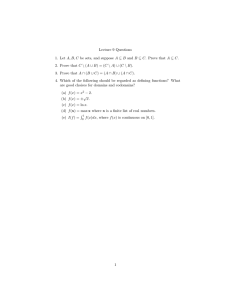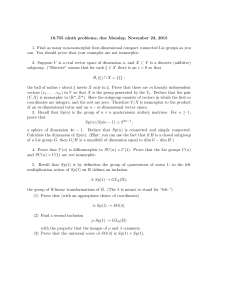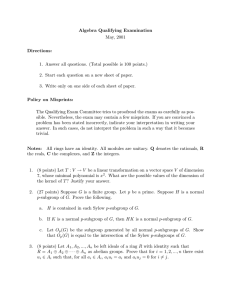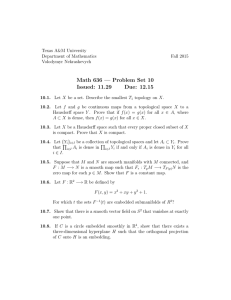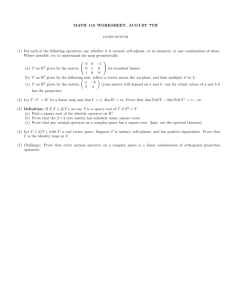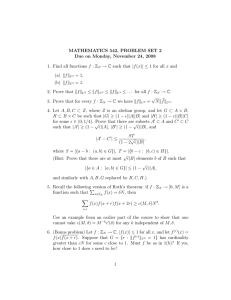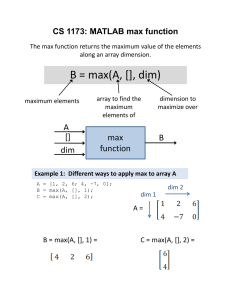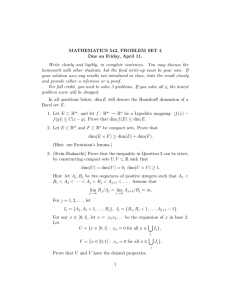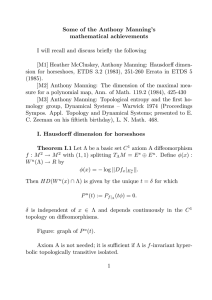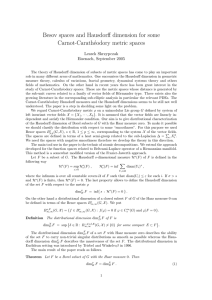MATHEMATICS 542, PROBLEM SET 3 Due on Friday, March 11.
advertisement
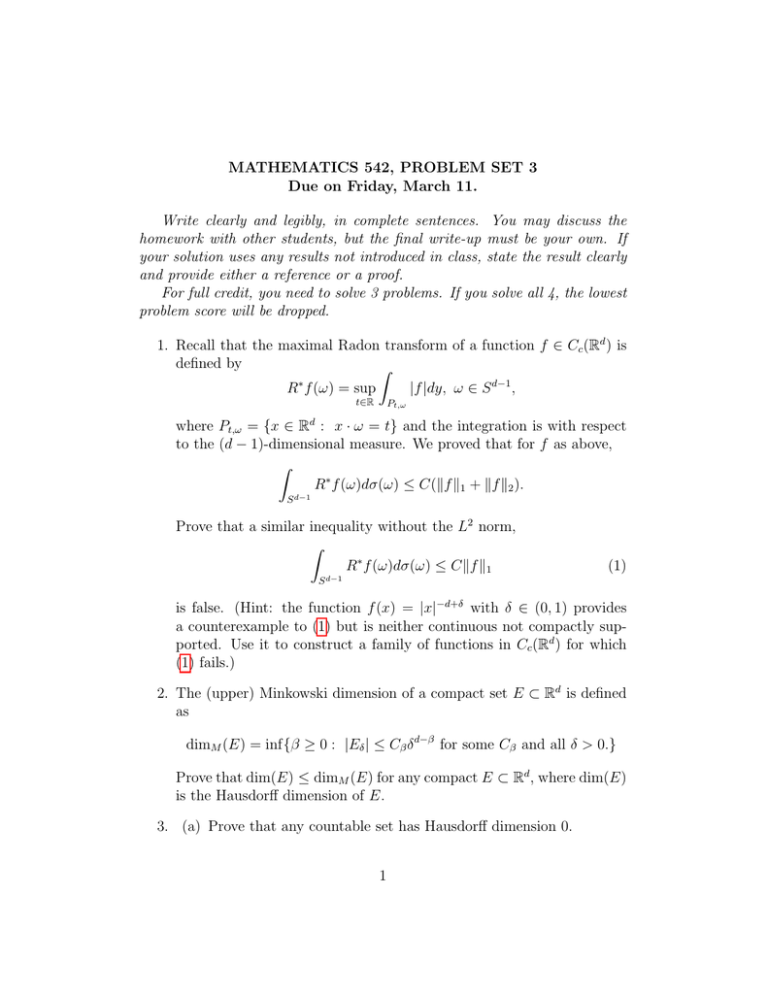
MATHEMATICS 542, PROBLEM SET 3
Due on Friday, March 11.
Write clearly and legibly, in complete sentences. You may discuss the
homework with other students, but the final write-up must be your own. If
your solution uses any results not introduced in class, state the result clearly
and provide either a reference or a proof.
For full credit, you need to solve 3 problems. If you solve all 4, the lowest
problem score will be dropped.
1. Recall that the maximal Radon transform of a function f ∈ Cc (Rd ) is
defined by
Z
∗
R f (ω) = sup
|f |dy, ω ∈ S d−1 ,
t∈R
Pt,ω
d
where Pt,ω = {x ∈ R : x · ω = t} and the integration is with respect
to the (d − 1)-dimensional measure. We proved that for f as above,
Z
R∗ f (ω)dσ(ω) ≤ C(kf k1 + kf k2 ).
S d−1
Prove that a similar inequality without the L2 norm,
Z
R∗ f (ω)dσ(ω) ≤ Ckf k1
(1)
S d−1
is false. (Hint: the function f (x) = |x|−d+δ with δ ∈ (0, 1) provides
a counterexample to (1) but is neither continuous not compactly supported. Use it to construct a family of functions in Cc (Rd ) for which
(1) fails.)
2. The (upper) Minkowski dimension of a compact set E ⊂ Rd is defined
as
dimM (E) = inf{β ≥ 0 : |Eδ | ≤ Cβ δ d−β for some Cβ and all δ > 0.}
Prove that dim(E) ≤ dimM (E) for any compact E ⊂ Rd , where dim(E)
is the Hausdorff dimension of E.
3. (a) Prove that any countable set has Hausdorff dimension 0.
1
(b) Find the upper Minkowski dimension of the set
√
√
√
{0, 1, 1/ 2, 1/ 3, 1/ 4, . . . }.
4. Let f, g ∈ S(Rd ), and let µ be a nonnegative, finite, compactly supported Borel measure on Rd . Prove that
Z
Z
b
f (x)b
g (x)dµ(x) = f (x)(g ∗ µ
b)(x)dx.
(We used this identity in the proof of the Tomas-Stein theorem.)
2
